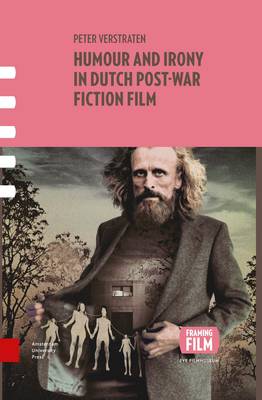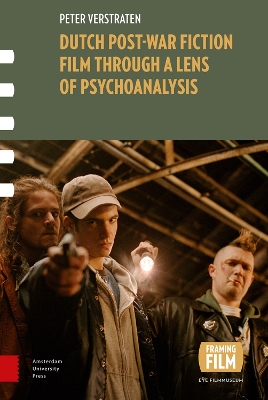Framing Film
1 primary work • 2 total works
Book 0
Dutch cinema, when discussed, is typically treated only in terms of pre-war films or documentaries, leaving post-war fictional film largely understudied. At the same time, a "Hollandse school," a term first coined in the 1980s, has developed through deadpan, ironic films like those of director and actor Alex van Warmerdam. Using seminal theories on humour and comedy, this book explores a number of Dutch films using the notion of categories, such as low-class comedies, neurotic romances, deliberate camp, and grotesque satire. With its original approach, this study makes surprising connections between Dutch films from various decades.
Dutch Post-war Fiction Film through a Lens of Psychoanalysis
by Peter Verstraten
Published 4 May 2021
Dutch Post-war Fiction Film through a Lens of Psychoanalysis is a sequel to Humour and Irony in Dutch Post-war Fiction Film (AUP, 2016), but the two studies can be read separately. Because of the sheer variety of Fons Rademakers’ oeuvre, which spans ‘art’ cinema and cult, genre film and historical epics, each chapter will start with one of his titles to introduce a key concept from psychoanalysis. It is an oft-voiced claim that Dutch cinema strongly adheres to realism, but this idea is put into perspective by using psychoanalytic theories on desire and fantasy. In the vein of cinephilia, this study brings together canonical titles (Als twee druppels water; Soldaat van Oranje) and little gems (Monsieur Hawarden; Kracht). It juxtaposes among others Gluckauf and De vliegende Hollander (on father figures); Flanagan and Spoorloos (on rabbles and heroes); De aanslag and Leedvermaak (on historical traumas); and Antonia and Bluebird (on aphanisis).

